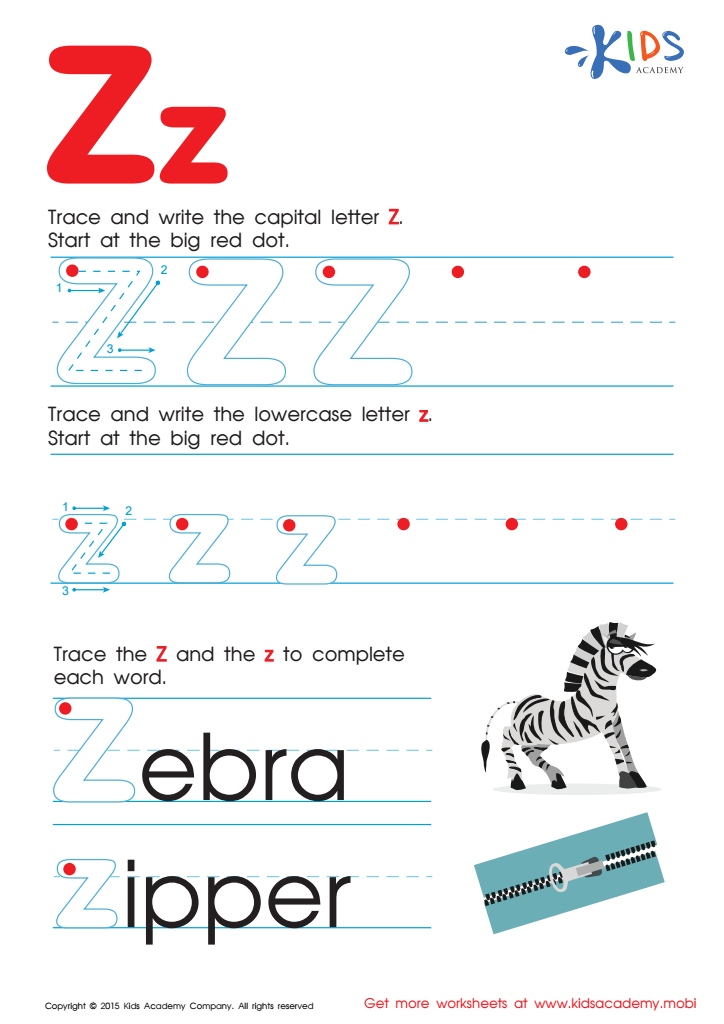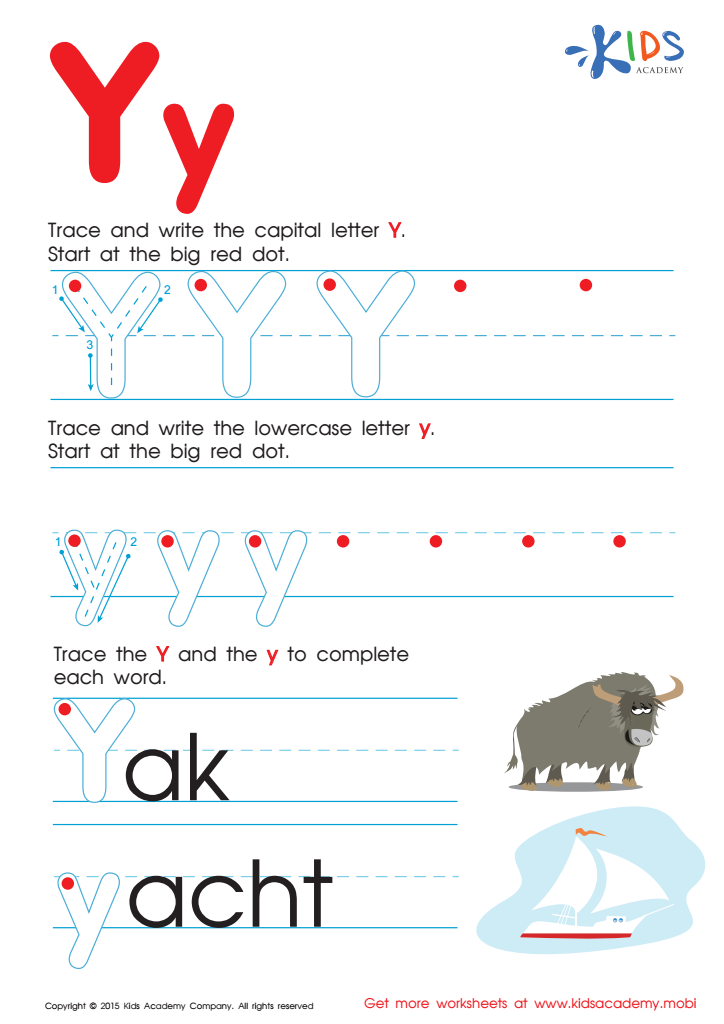Alphabet Recognition Extra Challenge English for Beginners Worksheets for Ages 4-9
3 filtered results
-
From - To
Enhance your child's learning journey with our "Alphabet Recognition Extra Challenge English for Beginners Worksheets for Ages 4-9." Perfect for young learners, these engaging printables are meticulously designed to make alphabet mastery fun. Our challenging activities cater to eager minds, fostering both recognition and retention of letters. Each worksheet delivers a blend of exciting tasks that promote focused learning and critical thinking. Ideal for ESL students or beginners, our resources ensure a strong foundation in the English language. Empower your child’s educational path with activities that invite curiosity and build confidence in reading and writing. Start their success today!


Letter A Tracing Page


Letter Z Tracing Page


Letter Y Tracing Page
Parents and teachers should prioritize Alphabet Recognition Extra Challenge English for Beginners for children ages 4-9 because it lays the foundation for essential literacy skills. Learning the alphabet is a critical step in a child's educational journey, as it enables them to recognize and differentiate letters, a fundamental precursor to reading and writing. When children are proficient in alphabet recognition, they can more easily sound out words, understand phonics, and build vocabulary.
Early introduction to alphabet challenges stimulates cognitive development and enhances memory and concentration skills. Using engaging activities and interactive learning methods keeps children motivated and satisfied, fostering a love for learning that can last a lifetime.
Moreover, these challenges are designed to be interactive and enjoyable, making learning feel like an exciting game rather than a chore. When parents and teachers are involved in this learning process, it adds a layer of support and encouragement, further solidifying the child's confidence and eagerness to learn. Providing such enriching educational experiences early on can significantly impact a child's academic success and overall love of the English language and learning.
Therefore, investing time and effort into Alphabet Recognition Extra Challenge sets a strong educational foundation and equips children with the skills they need to succeed academically and beyond.
 Assign to My Students
Assign to My Students
















